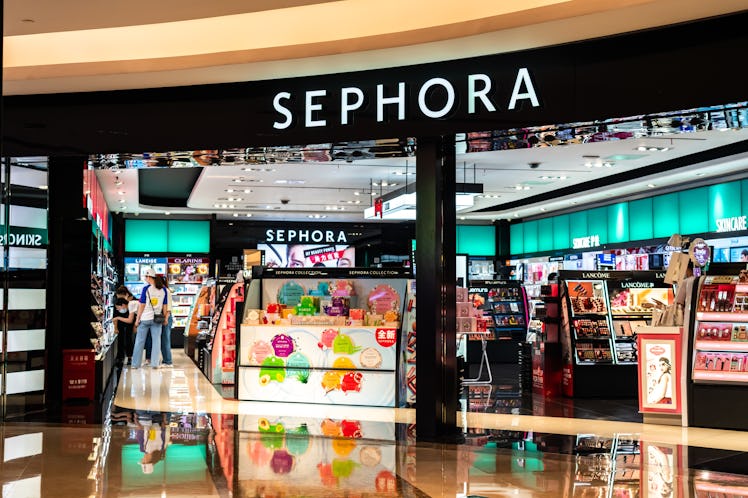
Sephora's Racial Bias In Retail Report Offers A Stark Look At BIPOC Shoppers' Experiences
On Wednesday, Jan. 13, 2021, major beauty retailer Sephora released its Racial Bias in Retail report, a first-of-its-kind study for the retailer that offered a stark look at the reality countless Black, Indigenous, and people of color face while shopping: What is typically an innocuous experience for white shoppers is often riddled with stress, racial biases, discomfort, and more for shoppers of color. In an attempt to better understand the retail experiences of BIPOC to work toward improving it, Sephora commissioned the Racial Bias in Retail Study, which offered a deep dive into the shortcomings of the shopping experience allowed the brand to outline a plan to move forward in creating a much more inclusive, safe shopping experience.
"At Sephora, diversity, equality, and inclusion have been our core values since we launched a new kind of beauty retail destination in the U.S. over 20 years ago – but the reality is that shoppers at Sephora, and in U.S. retail more broadly, are not always treated fairly and consistently,” said Jean-André Rougeot, President and CEO, Sephora Americas, in a press release. “We know that we’re in a strong position to influence positive changes in the retail industry and society at large and it’s our responsibility to step up."
Running from the fall of 2019 until late 2020, the study made clear issues BIPOC shoppers face on a routine basis. First, lack of diversity throughout a person's experience with a brand, from marketing to merchandise to retail employees, negatively affects BIPOC's shopping experiences. A majority of consumers Sephora surveyed believe that not only is marketing in myriad retail environments not diverse, but that stores also don't equally distribute products for a wide variety of shoppers. For example, picture a haircare aisle at a beauty store, and see how much space is given to products for coily hair compared to Eurocentric hairstyles and textures.
Additionally, the Racial Bias in Retail Report found that, compared to white shoppers, BIPOC are three times as likely to feel judged for their ethnicity or skin tone when shopping IRL. They also report feeling misunderstood, defensive, or overlooked. This discomfort in retail spaces has unfortunately led many BIPOC shoppers to cope in ways other shoppers don't have to, like exclusively shopping online for their items, spending as little time as possible in stores, dressing in different ways, or completely altering their body language to avoid these negative actions from employees and to avoid the negative feelings associated with IRL shopping.
Faced with findings that indicate a clear need for change, Sephora laid out its new action plan to prioritize inclusivity throughout each level of the company. By the end of 2021, the beauty brand plans on doubling its assortment of Black-owned brands on its shelves. It's also added a Black-owned brands tab on its website to make it easier to shop from a diverse range of companies. As for diversity in its marketing, Sephora plans on establishing new guidelines to show a wider array of races, ages, and body types in its campaigns.
As for improving the in-person shopping experience, the beauty retailer says it will create a new training program for all its Beauty Advisors, centering on consistency and client care. Sephora will also develop more ways for customers to share their feedback (and feel comfortable doing so) which will help the brand measure its improvements and shortcomings and deliver on its promise for change. Lastly, to ensure more people feel comfortable in its stores, Sephora is also decreasing the amount of third party security vendors.
To ensure the company isn't just paying a lip service, Sephora has promised to continue to communicate its progress twice a year on its "Diversity and Inclusion" page, located at the bottom of its website under "About." This is only the beginning of Sephora working toward becoming a more comfortable space for BIPOC beauty lovers. Hopefully, more brands in a position like Sephora will follow suit. You can learn more about Sephora's Racial Bias in Retail findings here.
This article was originally published on